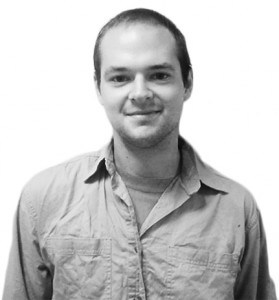With a myriad of obligations, the thought of making resolutions is intimidating. At 22 years old, how does one actually know which behaviors need mending, or which habits to establish, without real, ample experience in anything beyond the academic sphere?

(Though 14 years ago I had extensive insights in the realm of tee-ball, losing regularity in practice came as demise in that capacity.) Then considering the seemingly routined lifestyle beyond the age of 35, is confronting habits this early what a college student wants, or is that what’s externally desired of the individual?
Or can it be both? We are in flux—this constant, ever-present demand for change. We change as our surroundings change. A new year seems ripe for change. And college mandates that we change intellectually, emotionally, socially, etc.
College is meant to change a person through rigor. In my second year, a professor told me that college is more of an endurance test than anything. It has taken me two additional years to understand that he was telling me to change my perspective in order to operate more efficiently and effectively. He was demonstrating that the point in life when the frequency of challenges slows down is way, way off. He was requesting that I make resolutions to change intentionally. Easier said than done.
Resolutions seem pretty meta. They are abstract. They require an individual to peer inward to their mind to ideally come away reworked. Perhaps then it’s best that we students are on break when the New Year comes, as during a semester making changes can affect the routines we assume.
If we do make a New Years resolution, shortly thereafter comes returning to school with two weeks under the belt, and already gears turn differently. New maps are laid, navigating them comes easier than before, but they are still fresh. Gleaning insights into your own impressionability on yourself is empowering. People are malleable; we can think and act differently with persistence and practice.
Students can find strength in the power of habit. We can also find tremendous disadvantage if the habit is unhealthy. Habits can cost time and money; they can also distract from larger personal, social, academic or professional goals.
That’s why, as students, we should consider how we think more often than we likely do. Metacognition: thinking about our thinking. That’s at the heart of resolutions and of voluntary change more broadly. Forget the arbitrary nature of New Years. During these challenging, frustrating, and hopefully fulfilling years, each day invariably presents itself, regardless of what habits one has established.
That’s a challenge for being present during college. Daunting as each semester appears at the beginning, unless considering dropping out (which occasionally holds appeal), students are forced to sit in the driver’s seat.
Oh, the cliché—as if the years of academic conditioning can be compared to a leisurely drive, or even a race. It’s an endurance test. Slow and steady, like the tortoise, right? If we key in on the “steady” aspect, then the required focus for enduring college comes more and more easily.
That’s been my issue. Now in my eighth semester, I’m aware of how disoriented I was in the first few years.
Each day, choosing between sociality and academic performance, for a relatively anti-social teenager finally developing healthy interpersonal skills, was challenging. And turning around, in the second half (I hope!) of a long and often confusing bachelor’s degree process, I can finally comprehend how so much effort (sometimes fruitless) can benefit the mind. The kind of personal rigor required to perform in college should not be understated—it is a tremendous amount.
We students need to examine the nature of change and resolutions as constant processes. If our academic performances depend on it, imagine what else will beyond these hallways. To appropriate a line from rap-duo Dead Prez: discipline makes things easier.
It is with this mind-set that we can look forward to efficacy and personal growth.
For those who feel that a new year is the best time to make changes, salut! Best regards. For your own goals, I hope you are correct.
For everyone else, don’t lose hope after faltering. Think of them instead as “New Day resolutions.” Challenge yourself. Proving that you are up to a challenge is what these years are for. If keg-stands are difficult, try a career.
Changes can be sought in any phase of college. I know I am not entirely content with my habits, I hope to never be. Seeking personal change is a defining characteristic of being human. Embracing that is a beginning step.
























